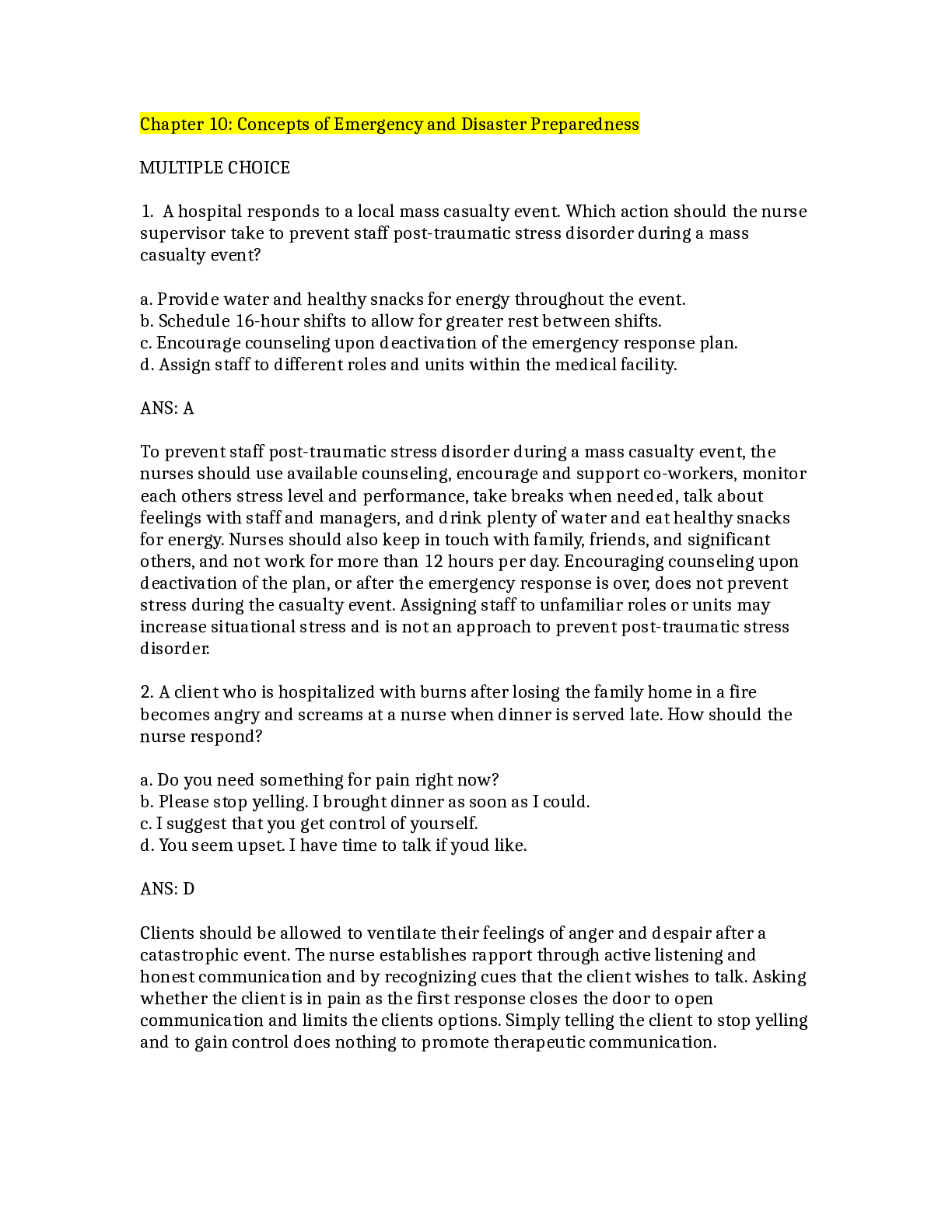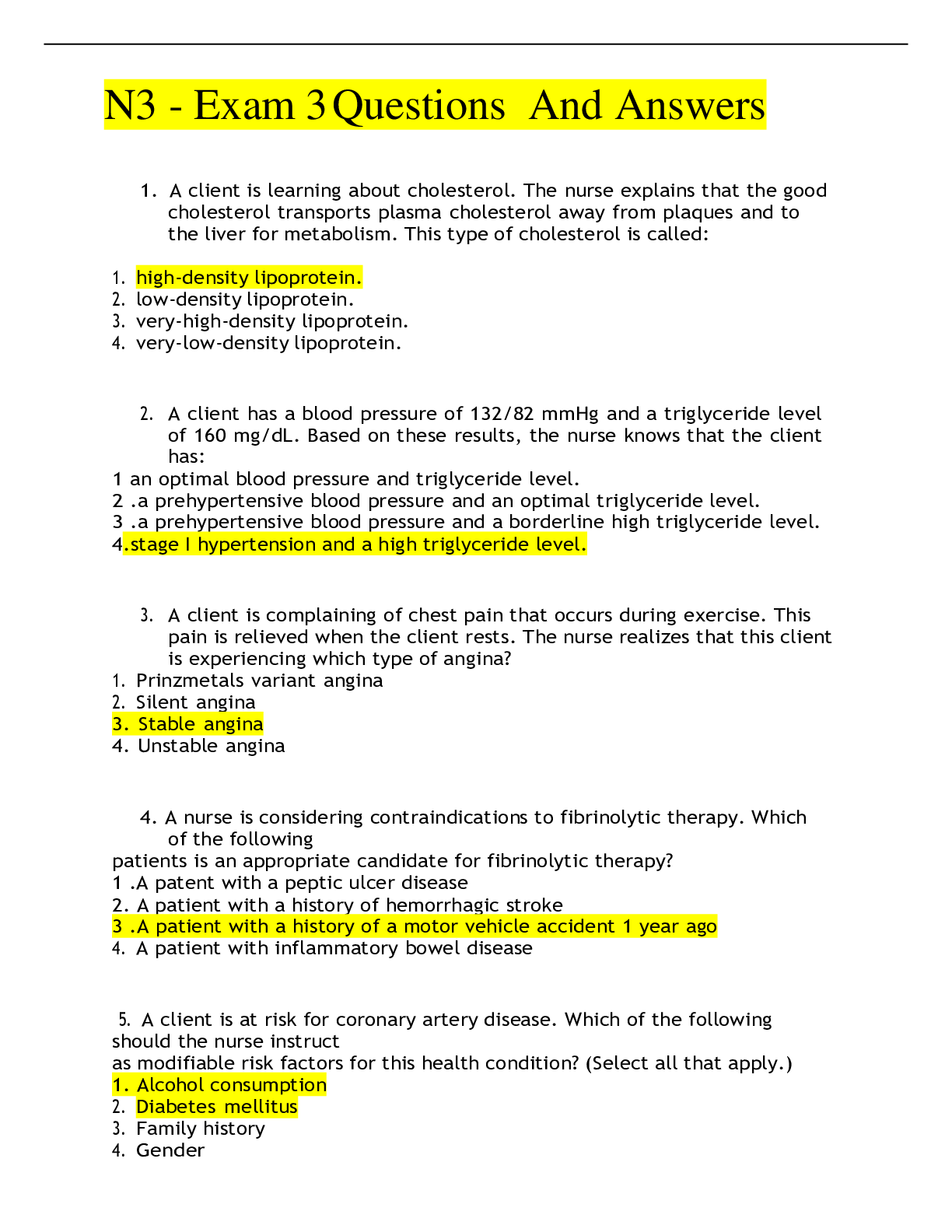Business Law > EXAM > BLAW 3310 - Exam 3 Review Test Bank, Complete solution guide: Latest Guide (All)
BLAW 3310 - Exam 3 Review Test Bank, Complete solution guide: Latest Guide
Document Content and Description Below
BLAW 3310 - Exam 3 Review Test Bank, Complete solution guide: Latest Guide-1. Every year, creditors have to absorb in unpaid debt: a. about $100 million b. about $5 billion c. over $20 billion d... . less than $5 million e. about $20 million ANSWER: c (page 331) National: AACSB Analytic; AICPA BB-Legal 2. Every year, creditors have to absorb in unpaid debt: a. about $10 million b. about $1 billion c. about $20 million d. about $50 million e. none of the other choices are correct ANSWER: e (page 331) National: AACSB Analytic; AICPA BB-Legal 3. The law of negotiable instruments has it origins in: a. France b. Rome c. England d. Spain e. Ancient Greece ANSWER: c (page 332) National: AACSB Analytic; AICPA BB-Legal 4. The law of negotiable instruments has its origins in: a. France b. Rome c. Kenya d. Spain e. none of the other choices are correct ANSWER: e (page 332) National: AACSB Analytic; AICPA BB-Legal 5. Before passage of laws affecting negotiable instruments: a. the right to payment was a contract right that could not be sold b. business was done on a cash basis only c. businesses were required to maintain large cash reserves (or cash equivalents, such as land or other property) as a guarantee of future payment for credit sales d. it was possible to buy products internationally only by opening a letter of credit as a guarantee of payment e. credit cards were the most common exchange form used ANSWER: a (page 332) National: AACSB Analytic; AICPA BB-Legal 6. Negotiable instruments: a. substitute for cash b. are generally also gold certificates c. make business deals more difficult d. are part of federal regulatory controls e. none of the other choices ANSWER: a (page 332) National: AACSB Analytic; Communication; AICPA BB-Legal 7. Negotiable instruments function as: a. substitutes for cash b. credit devices c. devices for making business deals easier d. are subject to Article 3 of the UCC e. all of the other choices ANSWER: e (page 332) National: AACSB Analytic; Communication; AICPA BB-Legal 8. Negotiable instruments are not: a. substitutes for cash b. credit devices c. devices for making business deals easier d. generally subject to Article 3 of the UCC e. none of the other choices National: AACSB Analytic; Communication; AICPA BB-Legal 9. Negotiable instruments are not: a. substitutes for cash b. credit devices c. subject to Article 2 of the UCC d. devices for making business deals easier e. all of the other choices ANSWER: c (page 332) National: AACSB Analytic; Communication; AICPA BB-Legal 10. Negotiable instruments are a part of the commercial law through: a. Article 2 of the UCC b. Article 3 of the UCC c. Article 3 of the CISG d. Article 3 of the Constitution e. Article 3 of the Universal Trade Code ANSWER: b (page 332) National: AACSB Analytic; AICPA BB-Legal 11. Negotiable instruments are a part of the commercial law through: a. Article 2 of the UCC b. Article 3 of the Universal Trade Code c. Article 3 of the CISG d. Article 3 of the Constitution e. none of the other choices are correct ANSWER: e (page 332) National: AACSB Analytic; AICPA BB-Legal 12. A(n) functions as a substitute for cash. a. parley b. easement c. negotiable instrument d. notable instrument e. credit instrument ANSWER: c (page 332) 13. A(n) functions as a substitute for cash. a. parley b. easement c. debtor instrument d. notable instrument e. none of the other choices are correct ANSWER: e (page 332) National: AACSB Analytic; AICPA BB-Legal 14. A(n) is a note promising to repay borrowed money, probably with interest. a. negotiable instrument b. negotiable note c. promissory note d. lending note e. borrowing note ANSWER: c (page 332) National: AACSB Analytic; Communication; AICPA BB-Legal 15. A(n) is a note promising to repay borrowed money, probably with interest. a. negotiable instrument b. negotiable note c. borrowing note d. lending note e. none of the other choices are correct ANSWER: e (page 332) National: AACSB Analytic; AICPA BB-Legal 16. A financial institution that receives a promissory note has the right to: a. sell the note to another party b. demand the U.S. Treasury redeem the note c. change the interest terms of the note d. demand repayment of the loan before the originally agreed upon time e. none of the other choices are correct ANSWER: a (page 332) 17. If a negotiable instrument is , the assignee has the same contract rights and responsibilities as the assign-or. a. assigned b. delegated c. returned d. negated e. realigned ANSWER: a (page 332) [Show More]
Last updated: 6 months ago
Preview 1 out of 427 pages
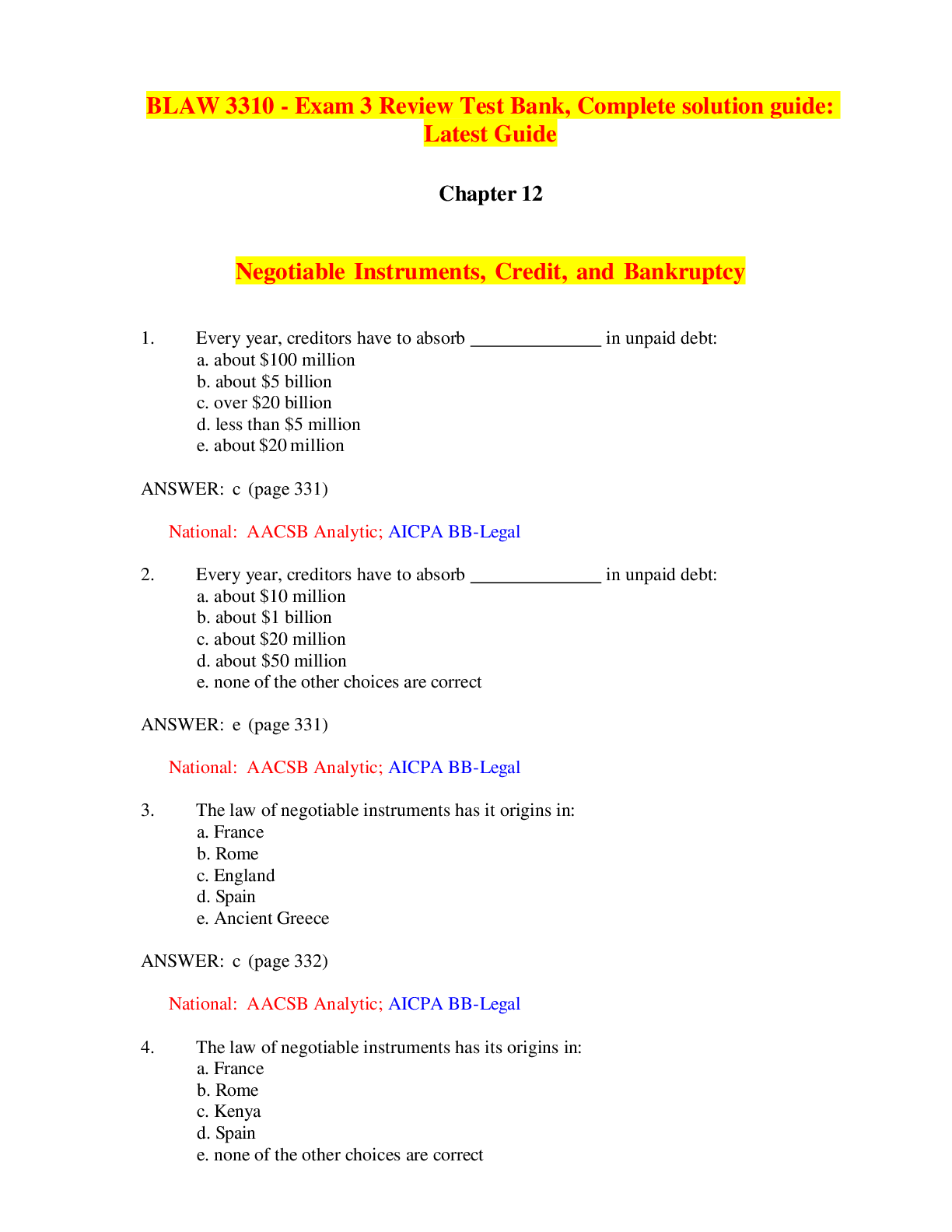
Buy this document to get the full access instantly
Instant Download Access after purchase
Add to cartInstant download
We Accept:

Reviews( 0 )
$19.50
Document information
Connected school, study & course
About the document
Uploaded On
Dec 13, 2023
Number of pages
427
Written in
Additional information
This document has been written for:
Uploaded
Dec 13, 2023
Downloads
0
Views
54

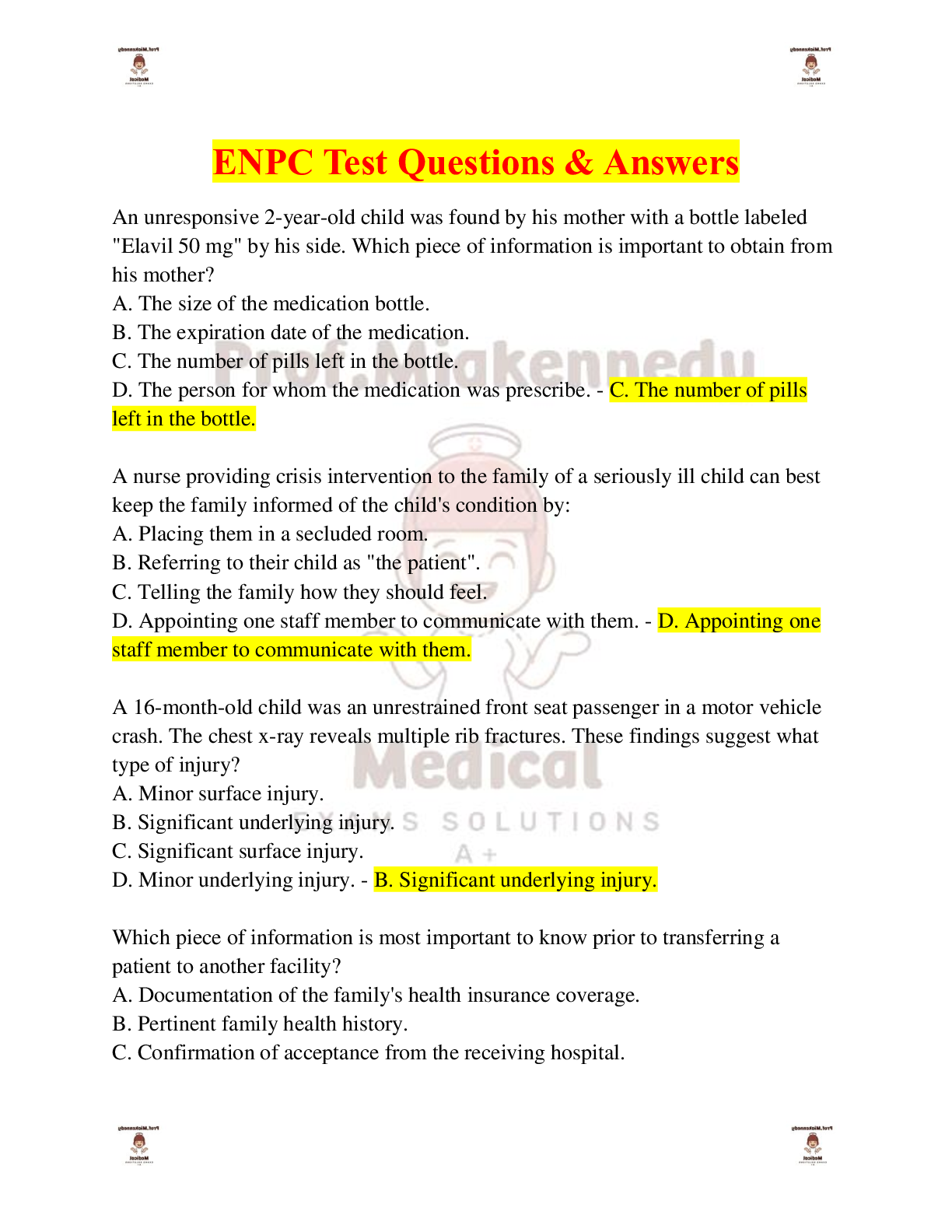
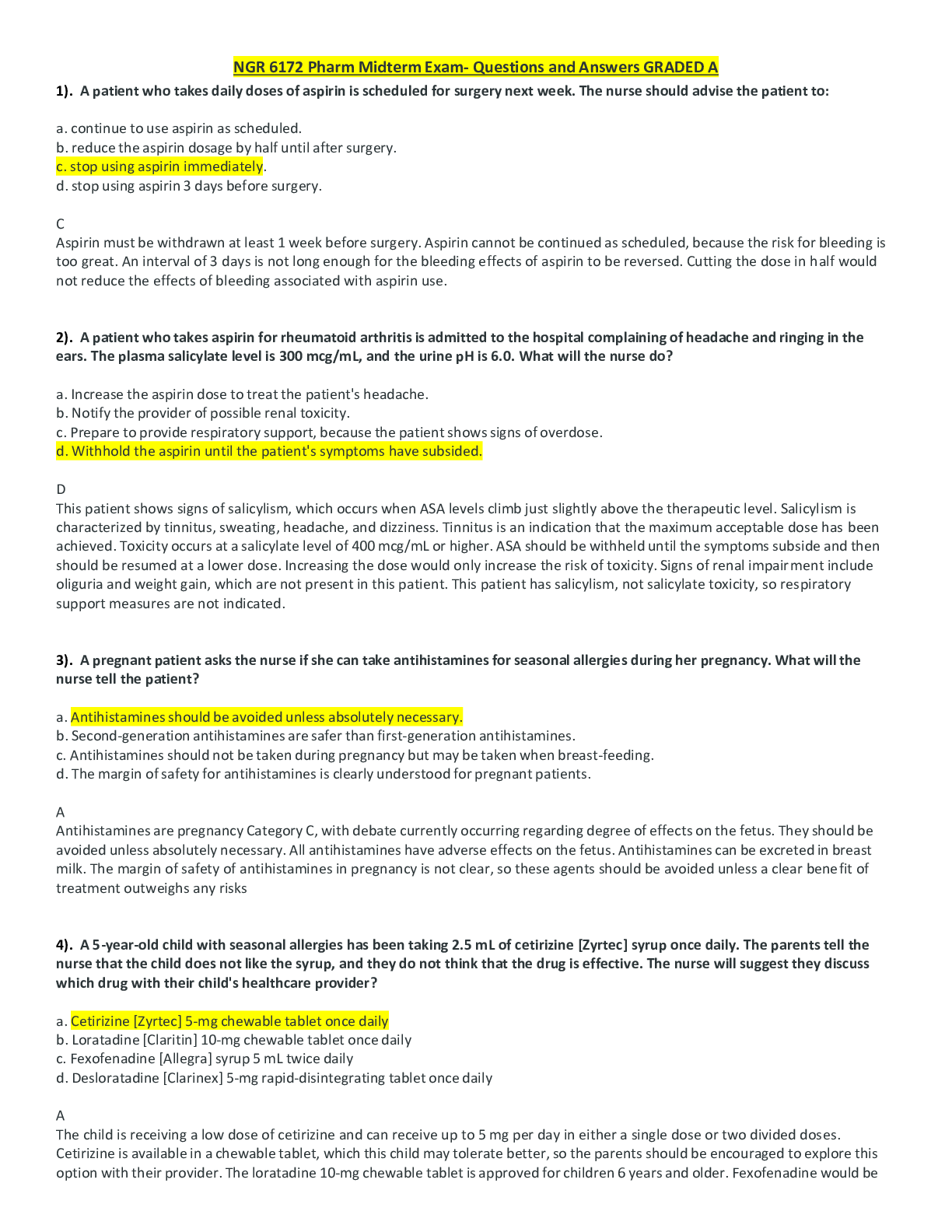
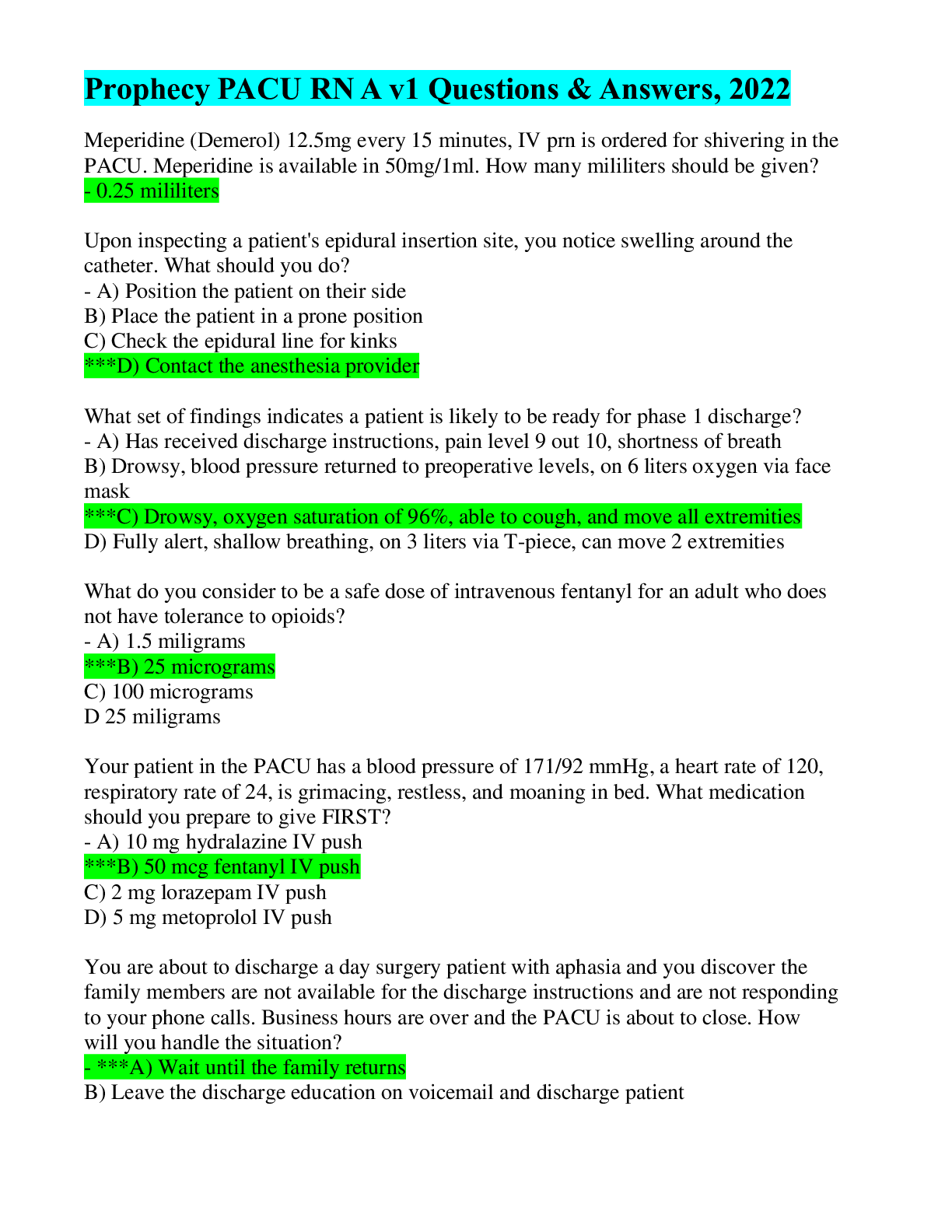
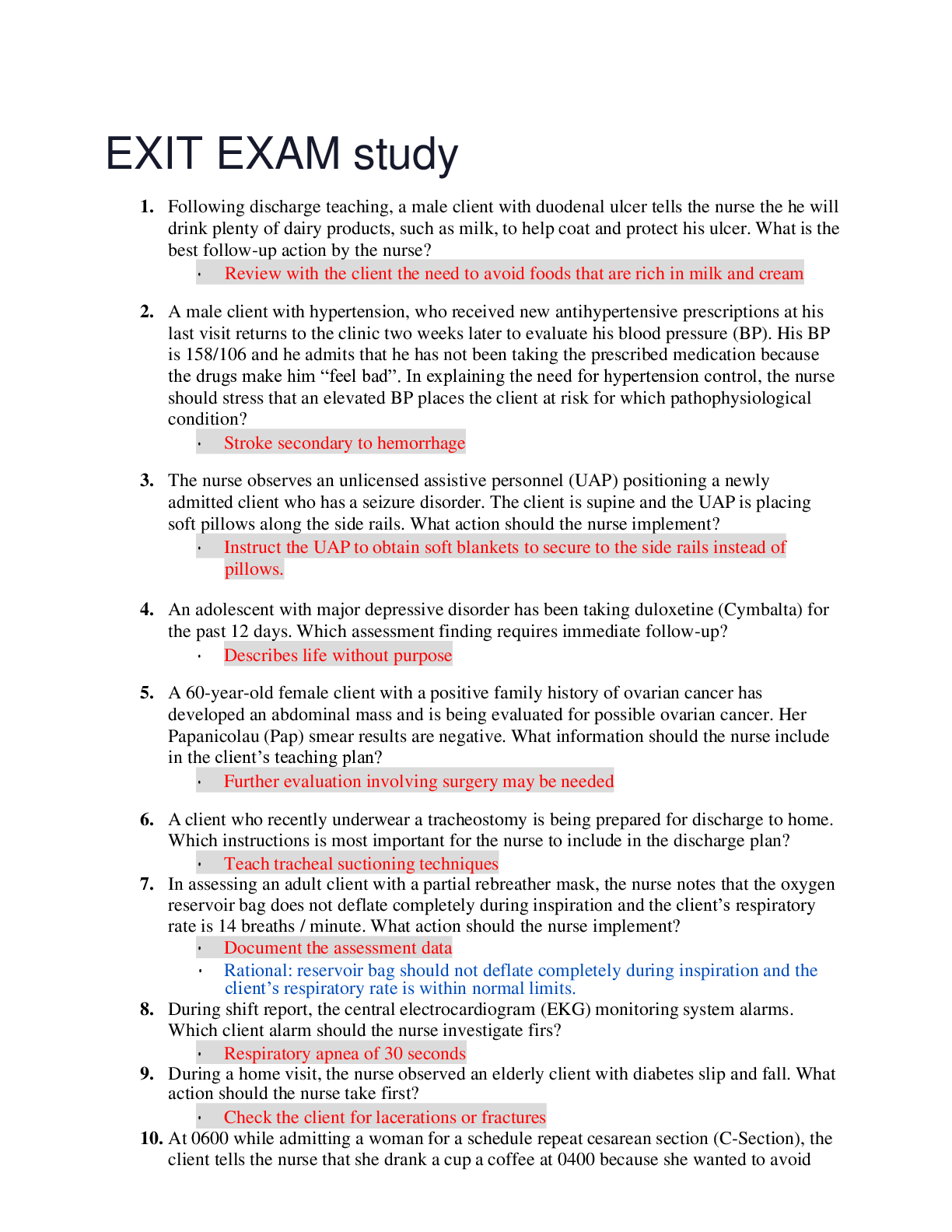
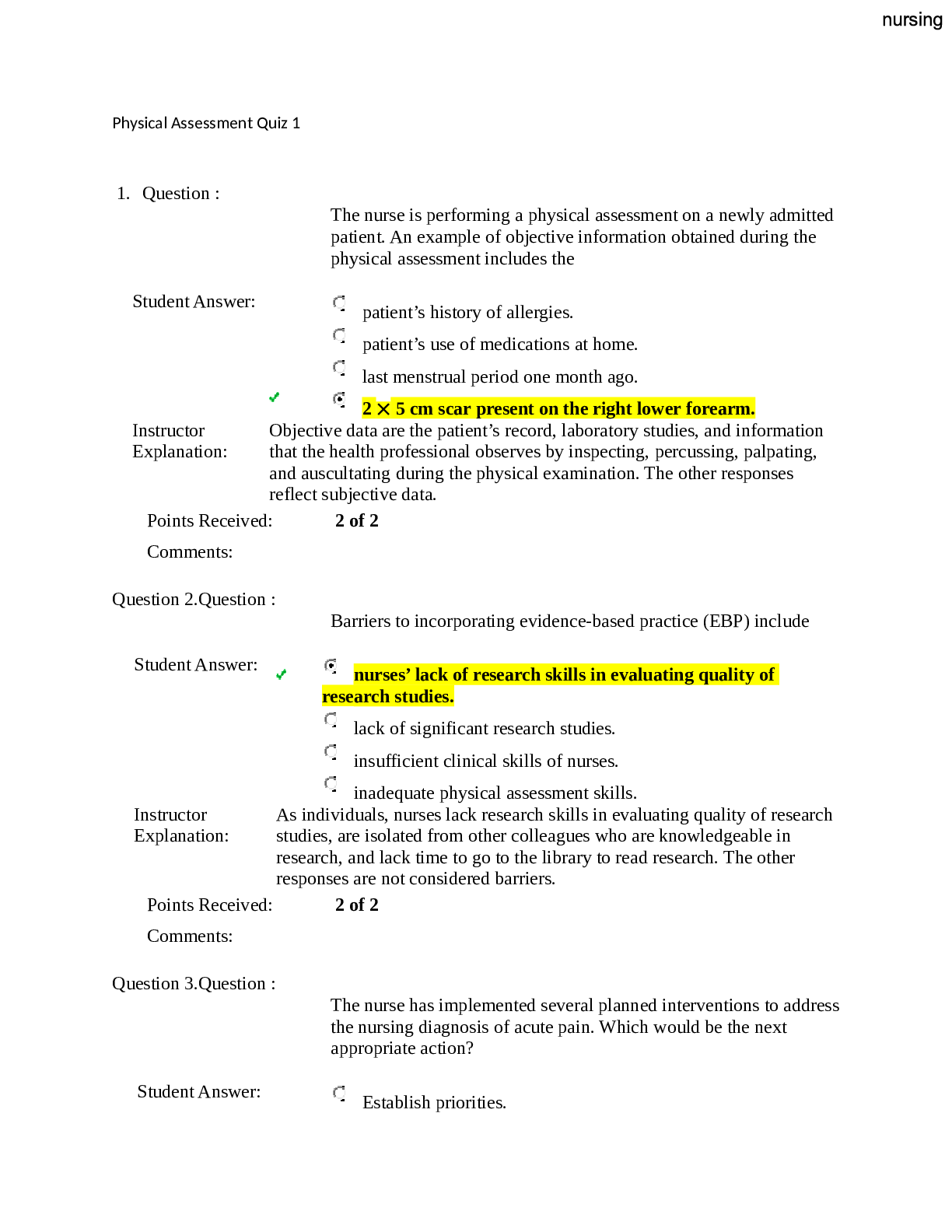
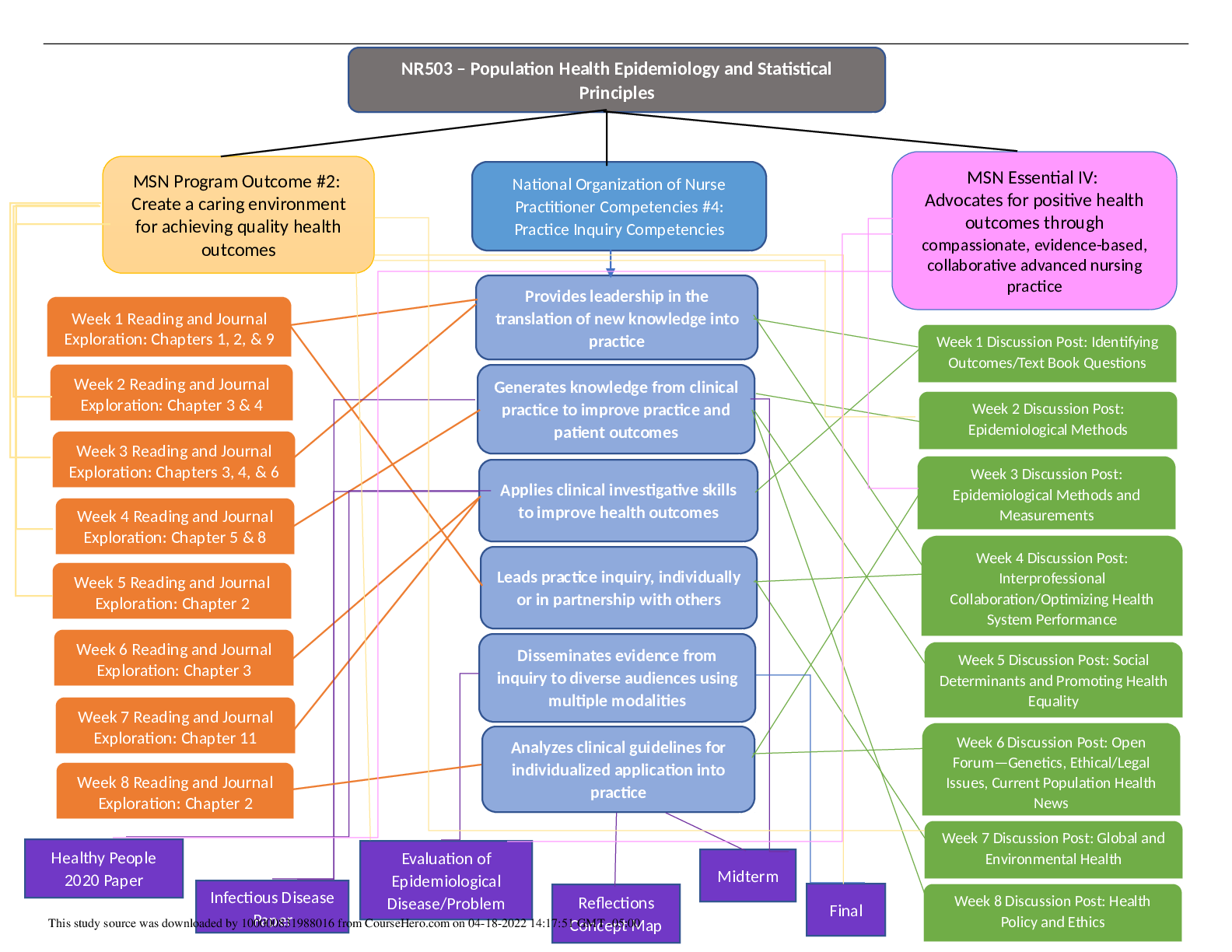

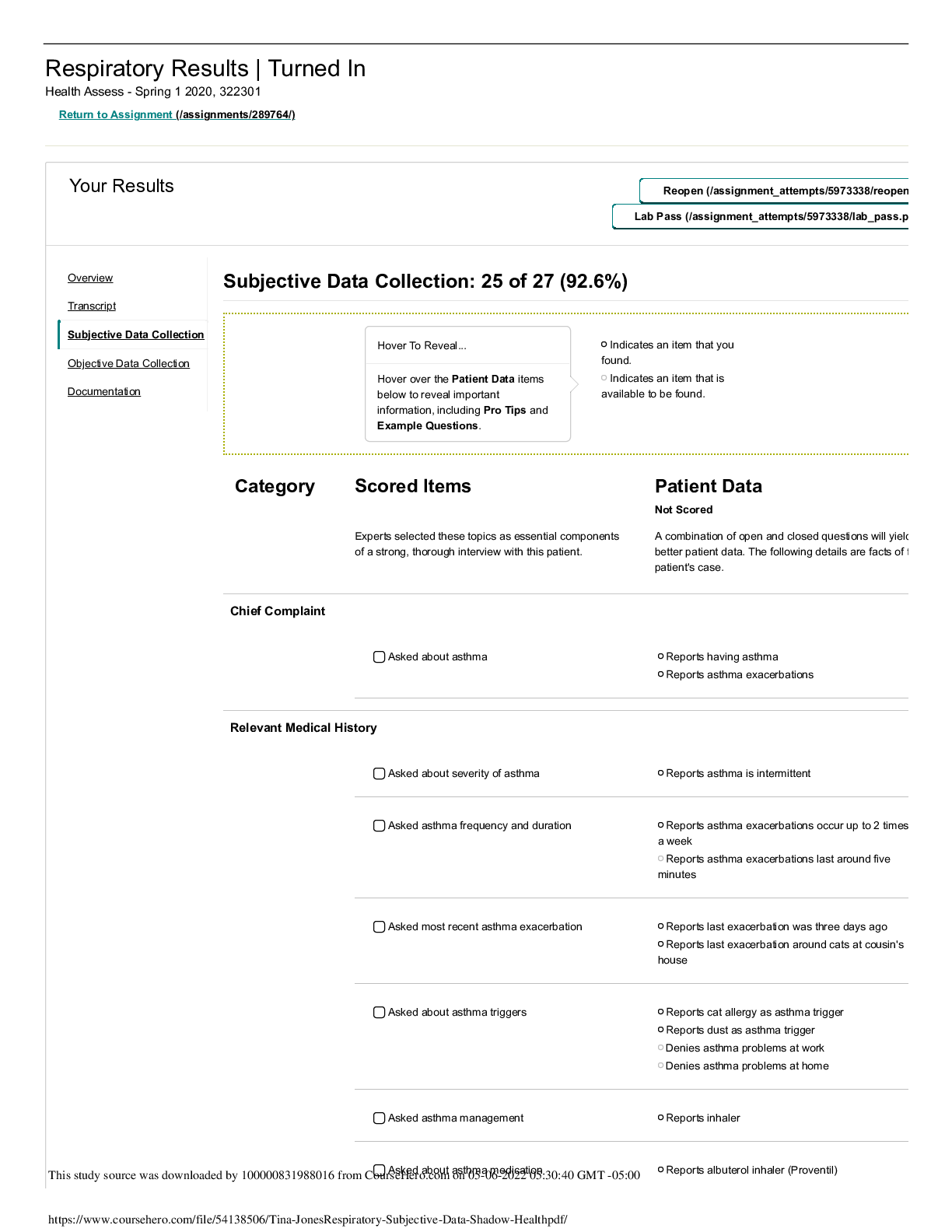
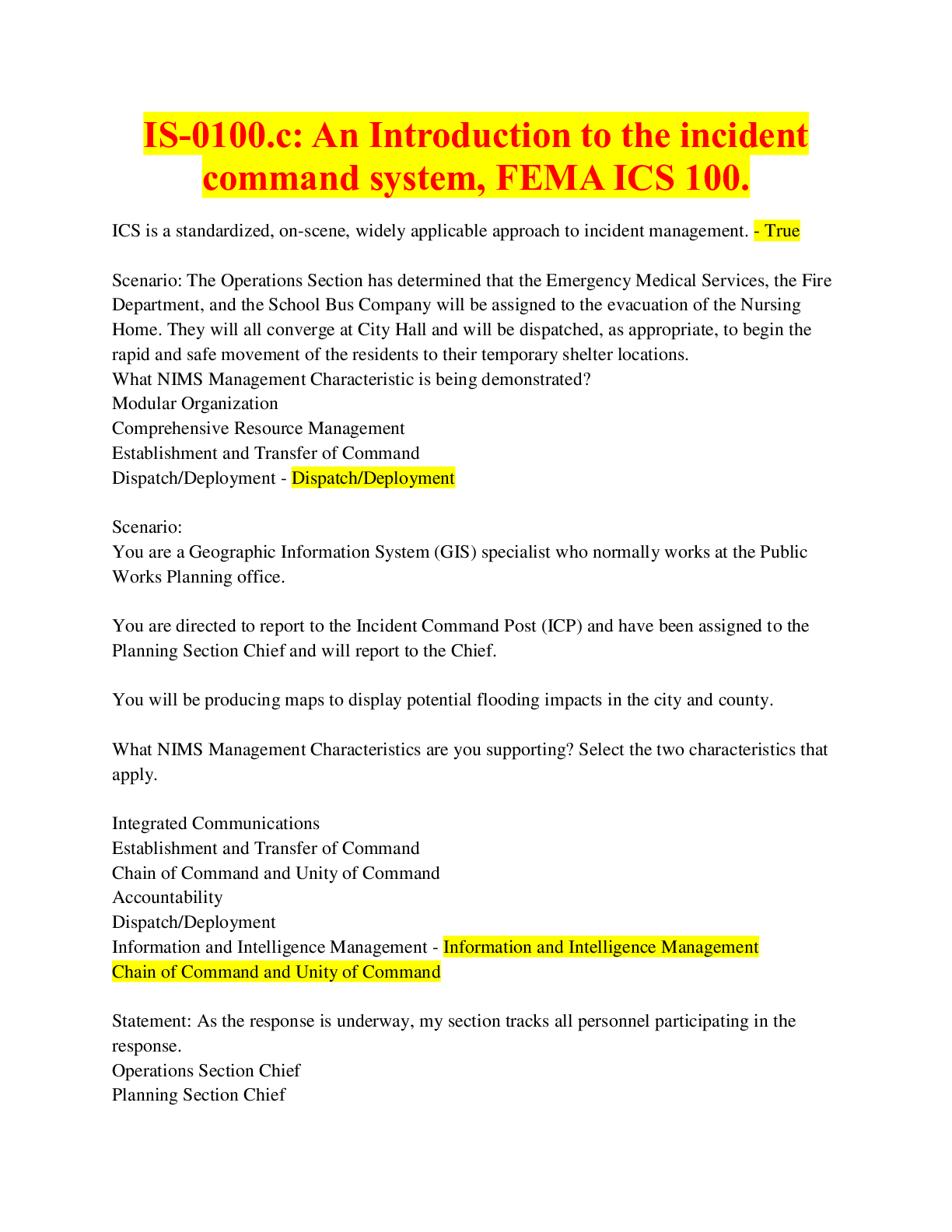

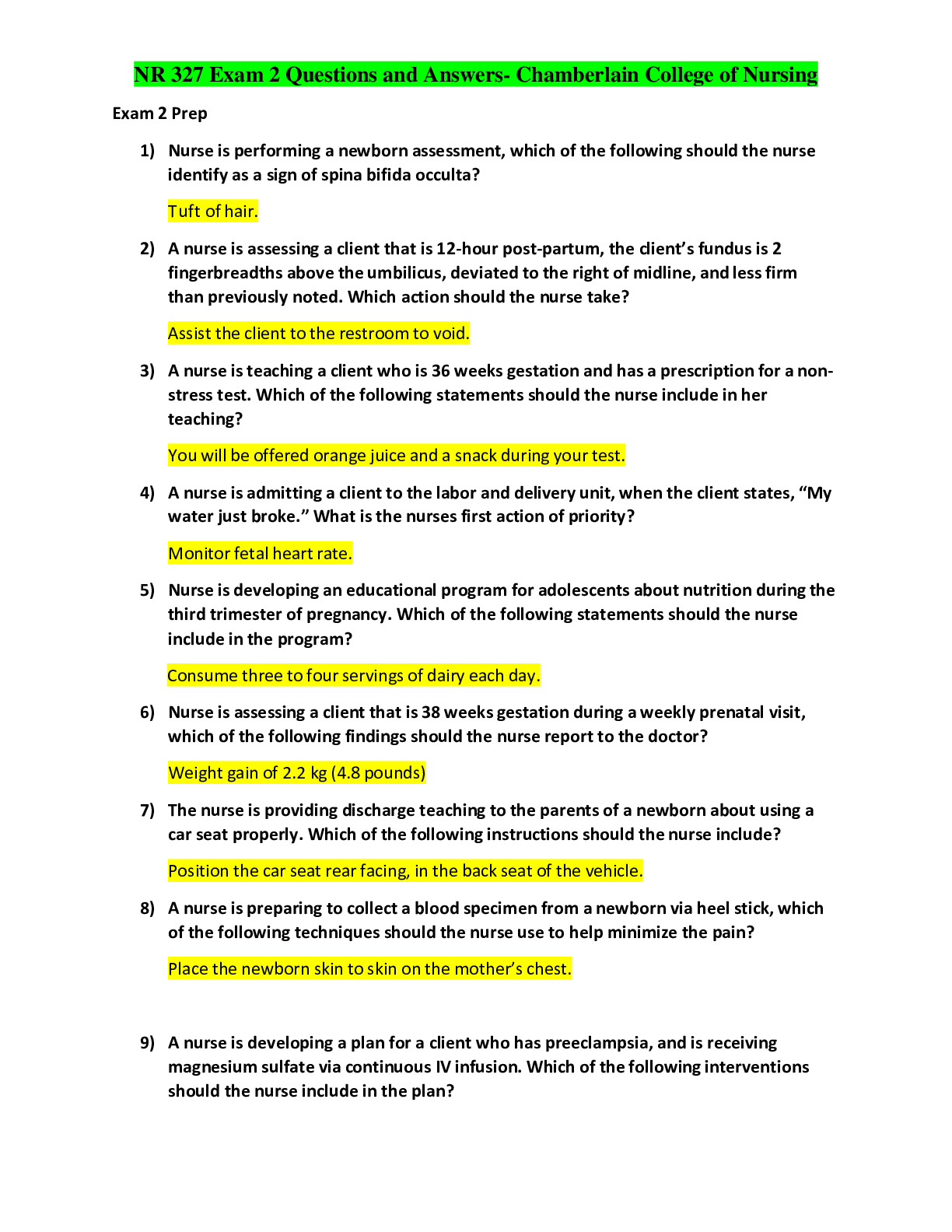
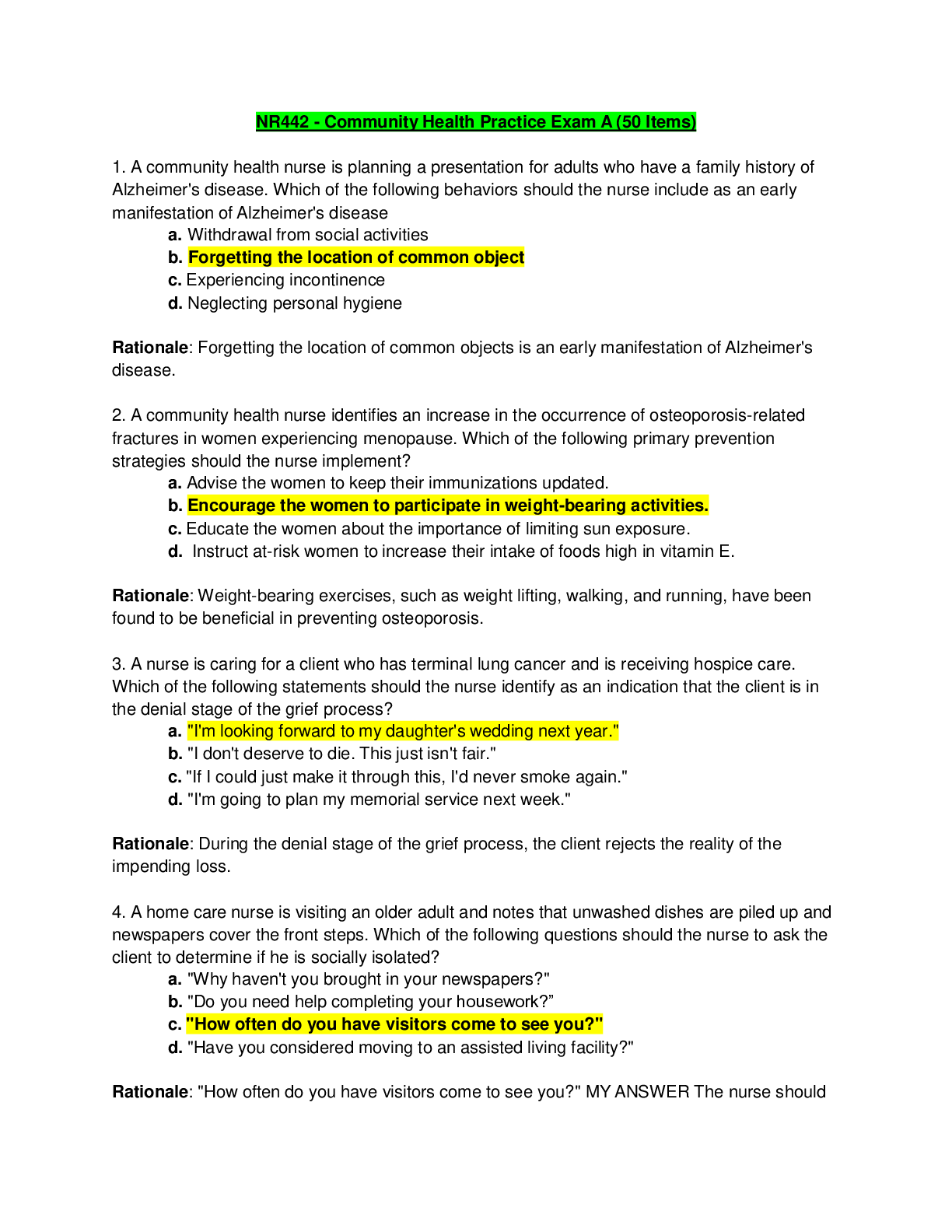
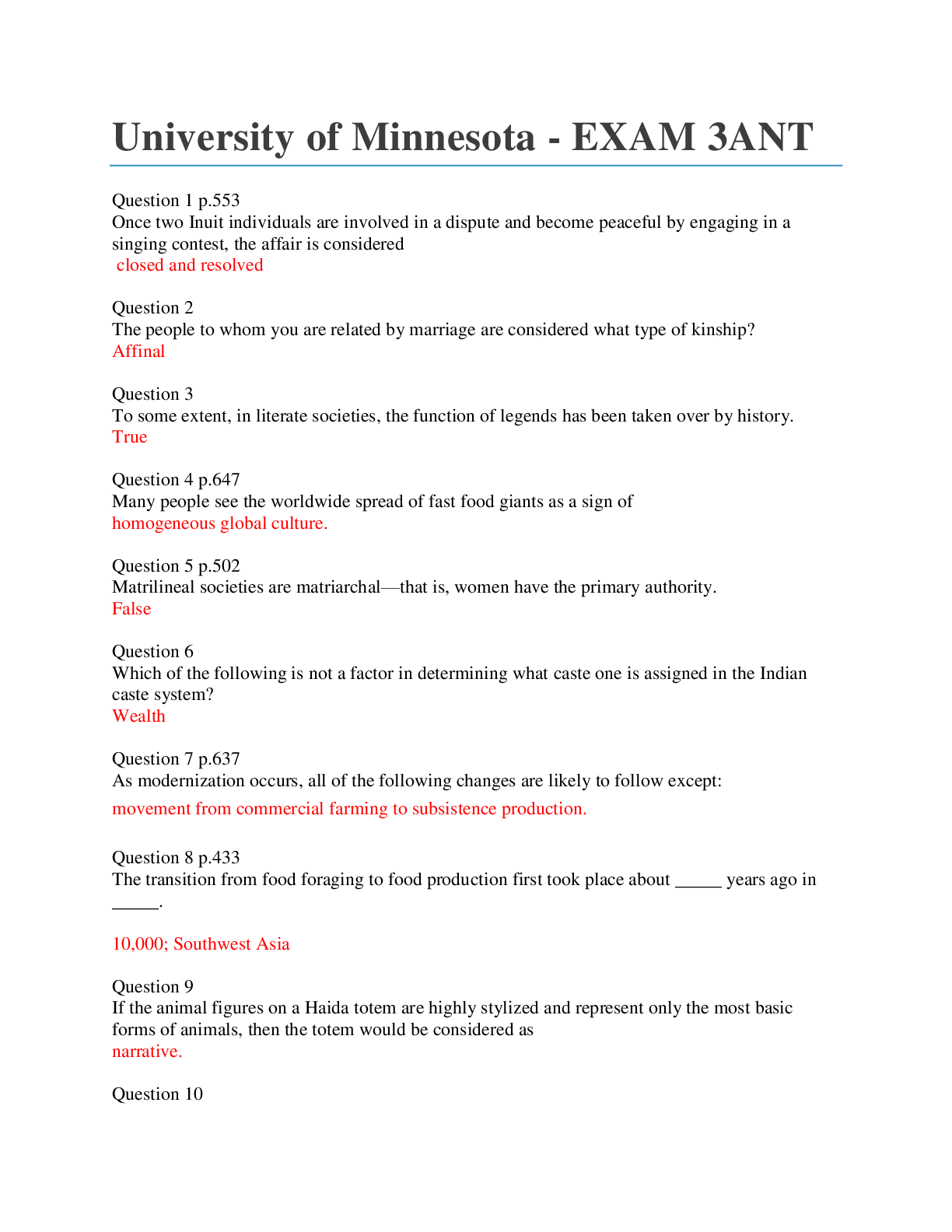
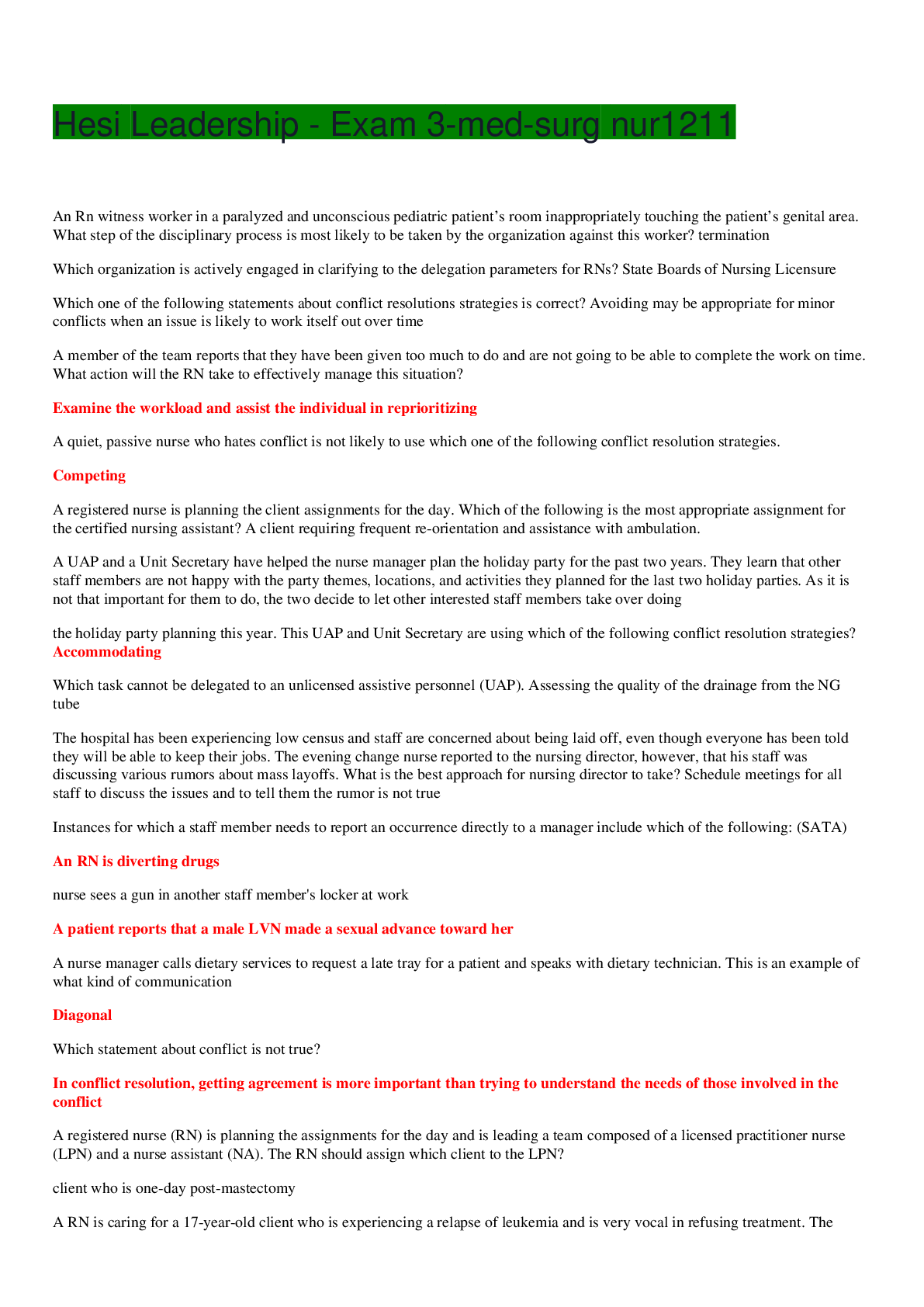

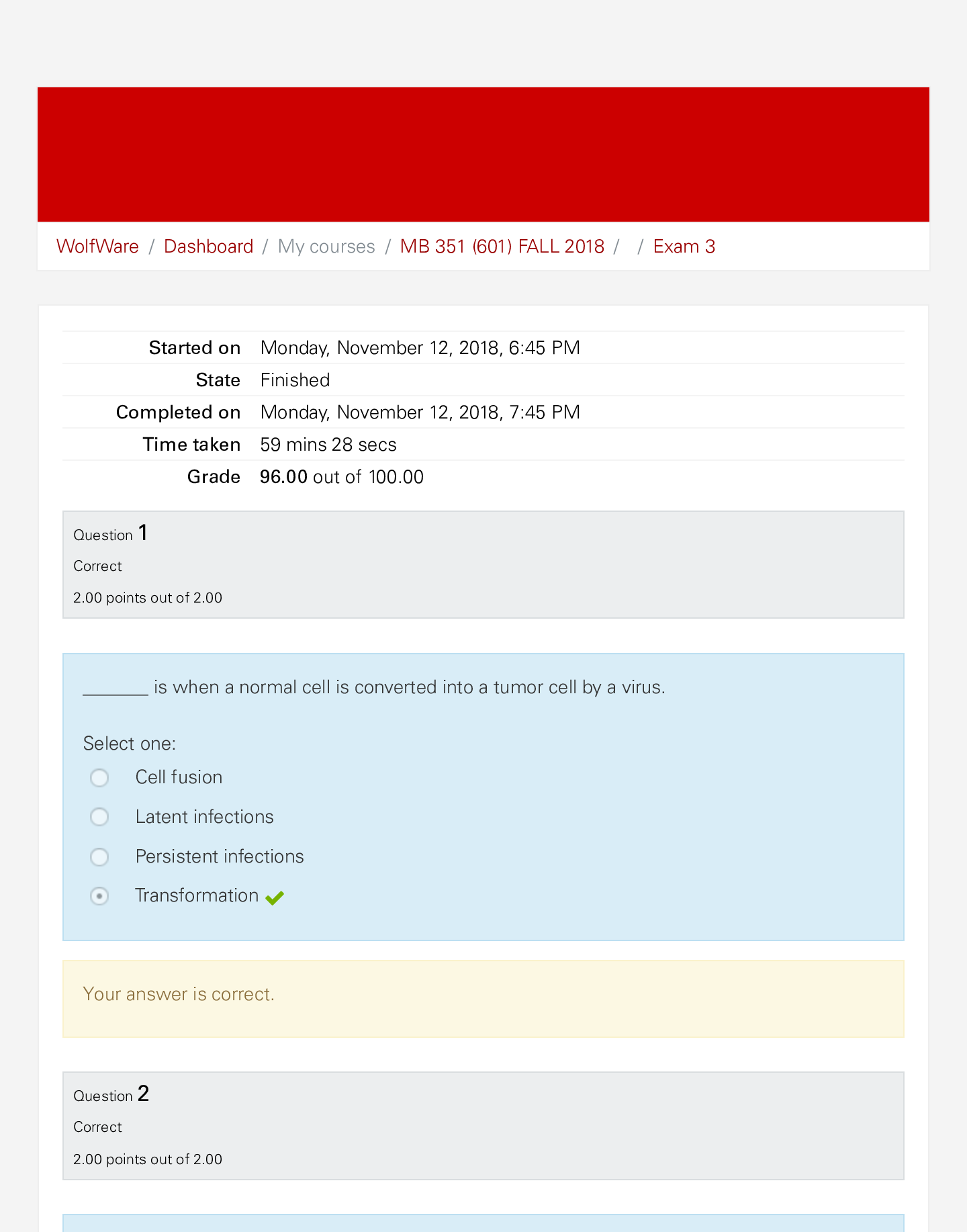
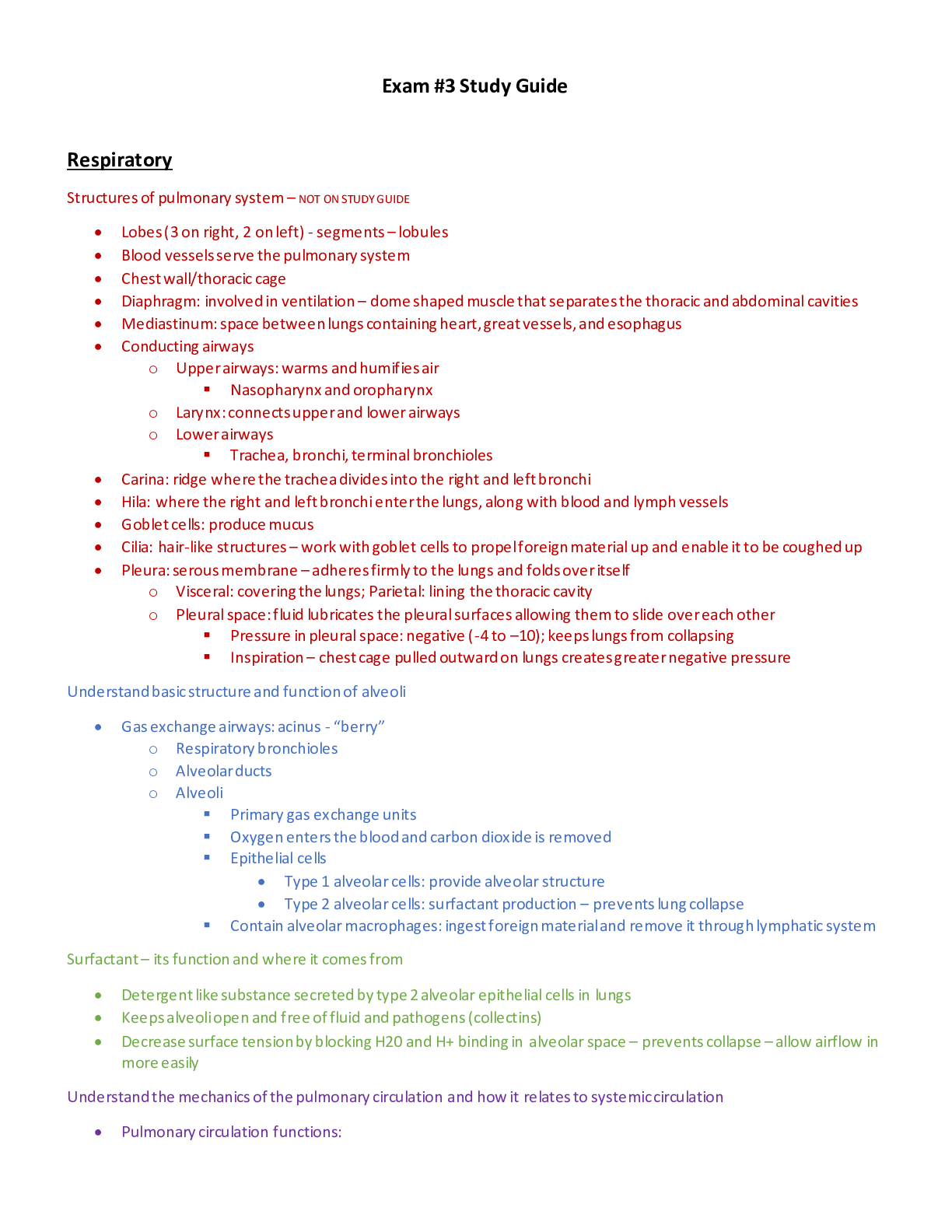

.png)
